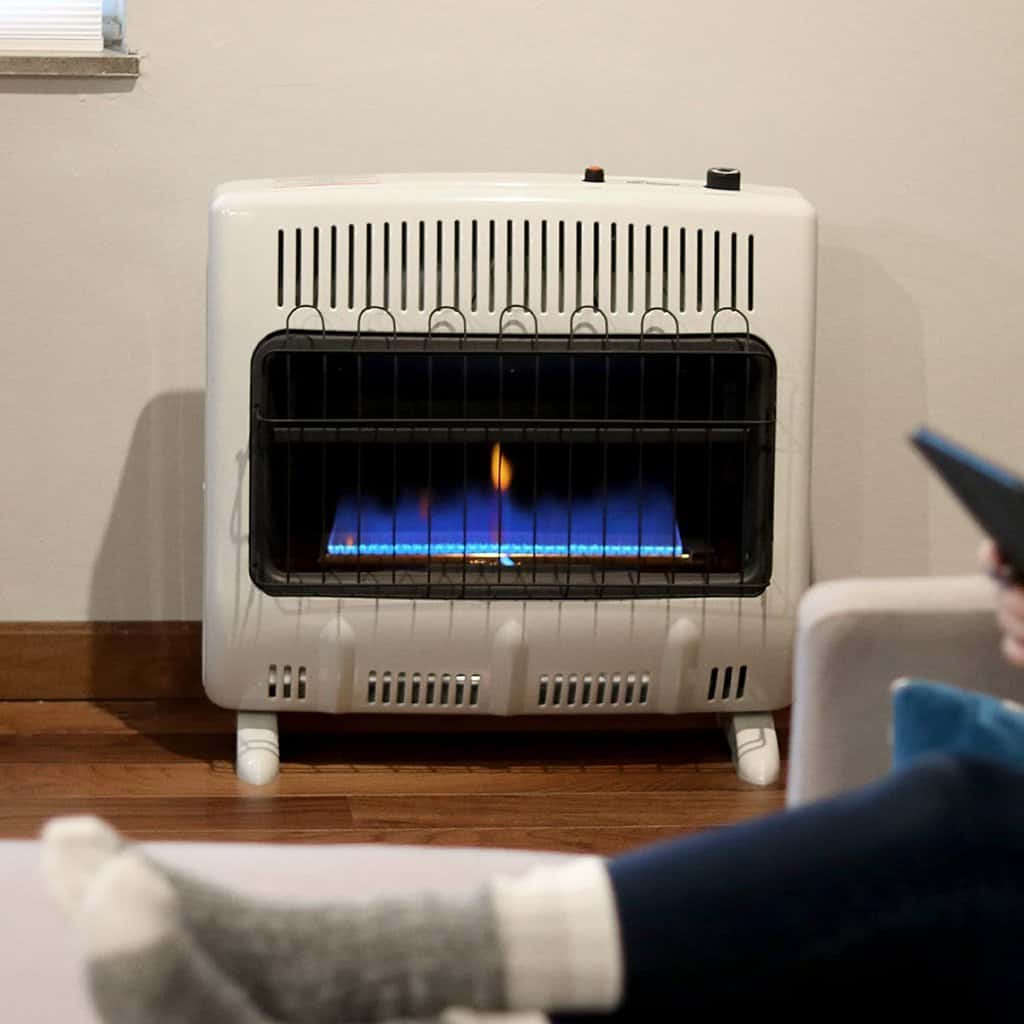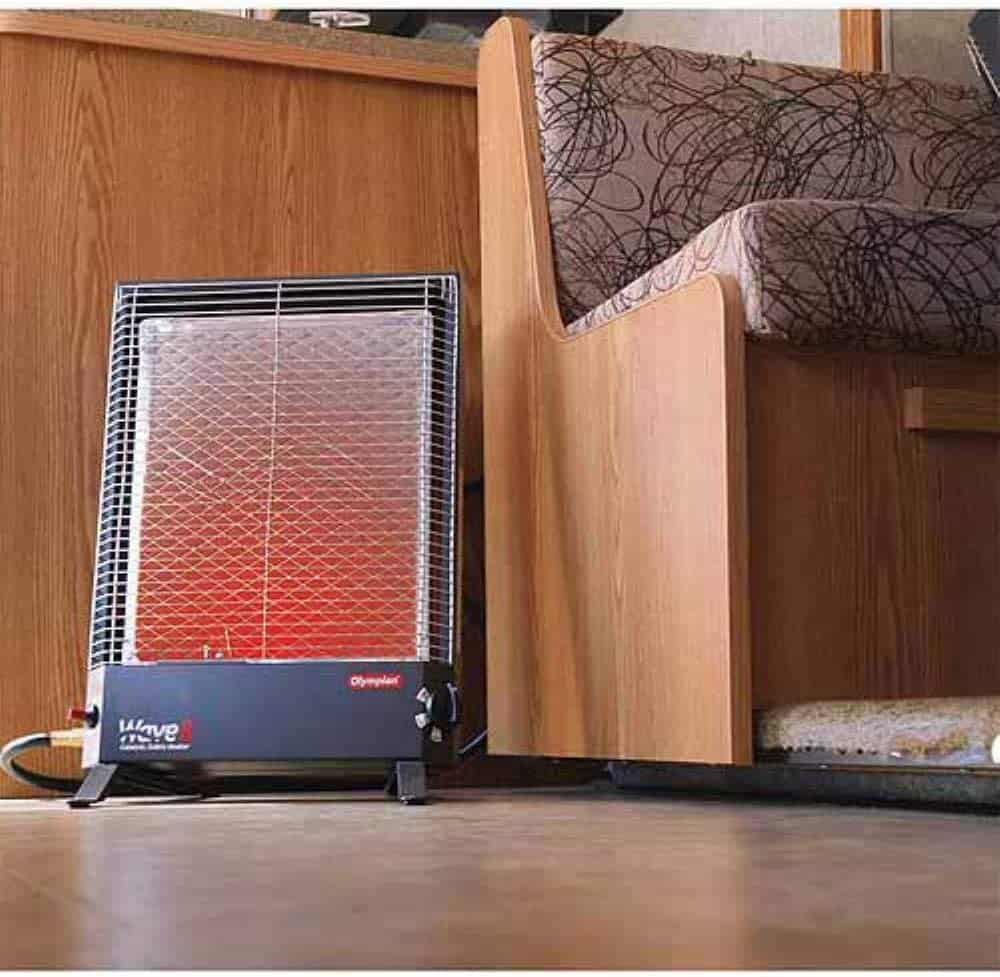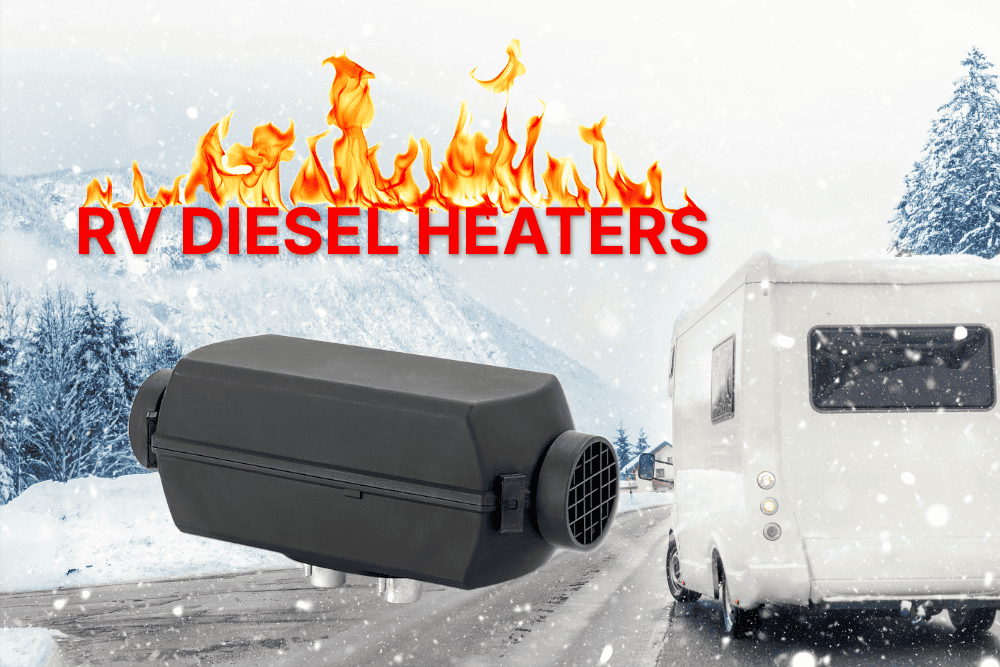
Small Space Heater Safety Tips You Need To Know
Space heaters are awesome for RVers because it can be expensive to run your RV’s heater all the time. These little units are powerful and can easily warm up a small room. However, they’re also a fire hazard because they produce heat. Therefore, it’s important for every RVer to know some small space heater safety tips.
Most of these tips are just common sense because it should be obvious that any heater could lead to a fire if you’re not careful. Just treat every space heater as if it were a tiny campfire, and you’ll be able to prevent most accidents and problems.
Follow along with the small space heater safety tips below to keep your RV warm but also safe. You shouldn’t be afraid to use space heaters; just make sure you take the appropriate safety measures.
Keep flammable items three feet away
One of the best rules for space heaters is to keep flammable objects out of range. Again, this is pretty obvious, but it’s especially important within the limited space of an RV. Sometimes that three-foot radius can be hard to maintain, but you should always be aware of the items that are around your heater.
Papers, curtains, rugs, and other flammable items need to be kept away from the heat source. In addition, some items may not burst into flames, but they could still be damaged if they’re exposed to high temperatures. For instance, a plastic garbage can might melt and warp a bit if it’s too close.
Three feet is the standard rule of thumb to follow. If you’re particularly worried about anything, move it a bit further away, just to be safe.
Do not use extension cords
Another good rule for RVers is to avoid extension cords. These cords can certainly be useful, but they also create a fire hazard. Exposed plugs and cords are easy to accidentally damage. If the plug connection is loosened, it could create loose sparks.
In addition, extension cords tend to be pretty long, so it’s easy to trip over them. This is dangerous for you and your electrical system alike, so try to avoid them if you can. Most small space heaters have decently long cords that allow you to position them wherever you want. Again, space is limited in an RV, so you shouldn’t need to rely on extension cords anyway.
Tuck power cords out of the way
Speaking of power cords, let’s talk about how to store them safely. A small space heater will usually sit on the ground, so the cord may lie across the floor as well. This is a tripping hazard, especially if you have pets, kids, or senior citizens in your group.
Sometimes it’s tempting to place cords underneath rugs or carpets, but this is a bad idea. The cord will still be stepped on, even if you can’t see it. This can lead to damage and could potentially expose the wires and start a fire.
It’s better to keep the cord close to the wall if possible. Secure it in place so it won’t create a dangerous situation for anyone who is walking nearby.
Only run heaters when you’re in the room
One of the top small space heater safety tips is to only turn it on when you’re in the room. It may be tempting to turn on the heater and do some chores while it warms up. This is a dangerous thing to do!
Never leave a space heater unattended. If things unexpectedly malfunction, you won’t be there to deal with the situation. In addition, you may be wasting electricity or propane if you run a space heater in an empty room. You’ll enjoy it much more if you only turn it on when you’re nearby.
When you plan to leave the room, turn off the heater, unplug it, and store it somewhere where it will be out of the way.
Keep it in a low-traffic area
As we’ve already mentioned, a small space heater is easy to trip over. That’s why it’s important to keep them in a low-traffic area where they won’t be in the way. You also need to ensure that they aren’t near a doorway/blocking an exit.
If you accidentally brush against a heater that’s active, you might come away with a nasty burn. This is part of the risk of running a space heater, but it’s something you should actively try to avoid by placing it in an out-of-the-way spot.
You’ll need to pick the spot carefully, but it might be a good idea to elevate the heater, so it’s off the ground. Make sure the surface is stable and nonflammable, like a built-in shelf or a small table.
Use models with built-in safety features
Sometimes accidents happen, and a small space heater is knocked over or left unattended in a room. In these cases, it’s good to have some backup from built-in safety features.
Many modern space heaters are equipped with fail-safes that will activate if the model is knocked over or left running for too long. For instance, my space heater will automatically turn off if it is knocked over. This prevents the floor or surrounding items from catching fire.
Other heaters have temperature control options that enable you to set limits for how hot it can get. Once it heats the room to the ideal temperature, it will automatically turn off.
Sometimes you can also set timers. If you tend to forget to turn heaters off when you leave the room, set a timer so it will shut off by itself. You don’t need to have a super high-tech heater to be happy, but safety features can give you some peace of mind.
Ensure you have functioning smoke alarms
One of the key elements of space heater safety is setting up an advanced warning system. Again, nobody is perfect, and sometimes heaters can create fire and smoke. In these situations, it’s important for you to have early warning. If you have a heads up, you can put out the fire or at least save yourself and your passengers from getting burned.
Smoke alarms will let you know if a heater has gone out of control. Install smoke and carbon monoxide alarms throughout your RV, especially in high-risk areas. Place them in your kitchen, laundry room, and any area where you might run your space heater.
Check the batteries and test their effectiveness regularly. Make sure everyone in your RV knows what to do when the alarm goes off, so nobody is caught unprepared.
Keep the heater away from kids and pets
Finally, it’s easier to abide by space heater safety tips if you don’t have kids or pets. They can knock over your heater and burn themselves by accident.
If you do have these passengers as part of your crew, take extra safety measures to protect everyone. Set up a radius around your heater and keep it out of reach (if possible). Elevating the heater is also a good idea if the floor is occupied.
For kids, try to teach them that the heater is dangerous and off-limits. For pets, use scented deterrents to convince them to stay away from the cords. As long as you follow the space heater safety tips above, you should be able to keep everyone safe, warm, and happy!
One of the best parts about RVing is engaging with the community of traveling enthusiasts. iRV2 forums allow folks to chat with other RVers online, and get other perspectives on everything RVing, including products, destinations, RV mods, and more.
Related articles:





As a retired fire captain, AWESOME TIPS!!!
You nailed it. Thank you.
I added a Dyson fan/space heater to my RV. The outside case never gets hot. I don’t know how they did it, but it has to be one of the safest space heaters I’ve seen.